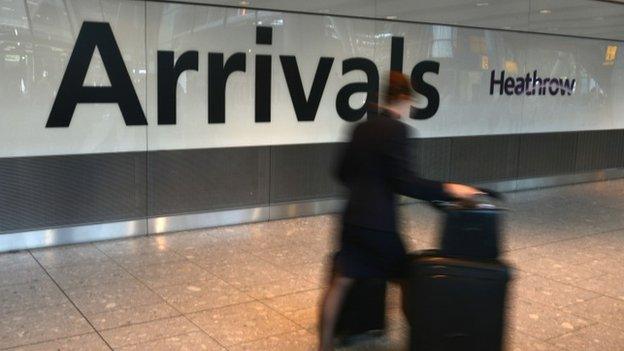Modern slavery: Theresa May vows to defeat 'evil'
- Published
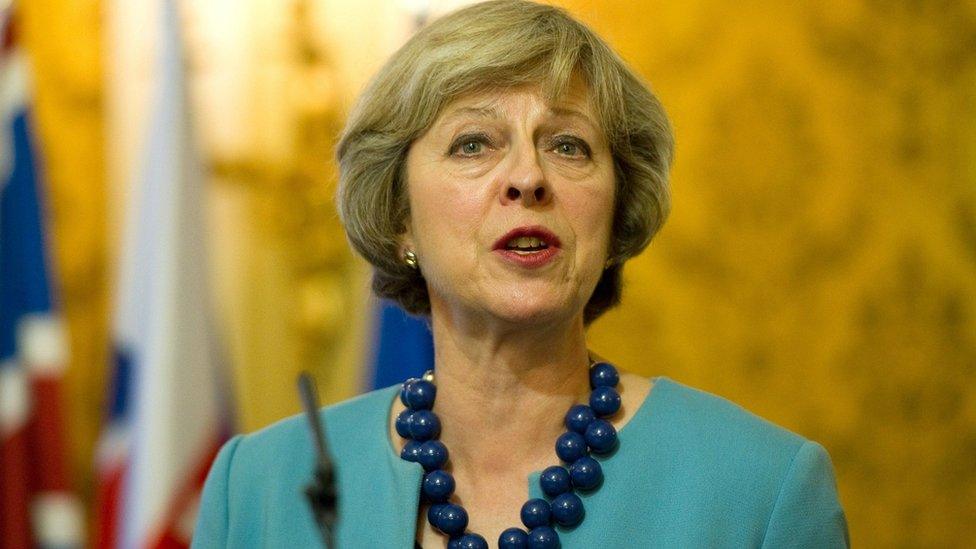
Britain will lead the fight against modern slavery, Theresa May has said, vowing to make it her mission to help rid the world of the "barbaric evil".
Writing in The Sunday Telegraph,, external the prime minister called it "the great human rights issue of our time".
She said a new UK cabinet taskforce would tackle the "sickening and inhuman crimes" while £33m from the aid budget would fund initiatives overseas.
Labour said the police needed better funding if they were to tackle slavery.
UK slave victims 'not getting proper support'
What does modern slavery look like around the world?
The most recent Home Office estimates suggest there are between 10,000 and 13,000 victims of modern slavery in the UK, with 45 million estimated victims across the world.
'Locked up, abused'
Victims are said to include women forced into prostitution, "imprisoned" domestic staff and workers in fields, factories and fishing boats.
Mrs May said: "From nail bars and car washes to sheds and rundown caravans, people are enduring experiences that are simply horrifying in their inhumanity.
"Vulnerable people who have travelled long distances, believing they were heading for legitimate jobs, are finding they have been duped, forced into hard labour, and then locked up and abused.
"Innocent individuals are being tricked into prostitution, often by people they thought they could trust. Children are being made to pick-pocket on the streets and steal from cash machines."

What is modern slavery?
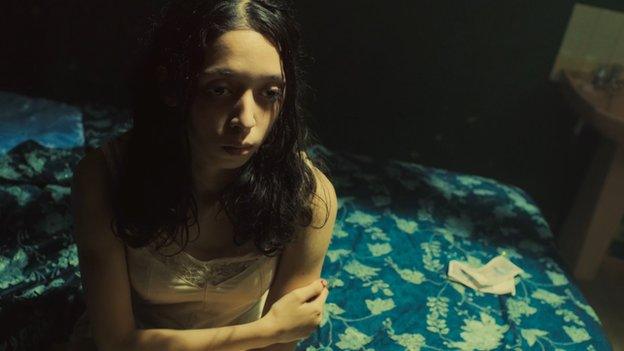
Modern slaves in the UK, often said to be hiding in plain sight, are working in our nail bars, on construction sites, in brothels, on cannabis farms and in agriculture.
Traffickers are using the internet to lure their victims with hollow promises of jobs, education and even love.
Albania, Nigeria, Vietnam, Romania and Poland are the most likely countries of origin, but some victims are from the UK itself. In 2013, 90 were UK nationals.
There is no typical victim. They can be men, women or children of all ages but it is normally more prevalent among the most vulnerable, minorities or socially-excluded groups.
Many believe they are escaping poverty, limited opportunities at home, a lack of education, unstable social and political conditions or war. But their slave masters are usually out to make financial gain.
Sexual exploitation is the most common form of modern slavery reported in the UK, followed by labour exploitation, forced criminal exploitation and domestic servitude.
In 2014, the Home Office estimated there were between 10,000 and 13,000 potential victims in the UK - just 2,340 of those were officially reported and recorded.
Sources: Independent Anti-Slavery Commissioner Strategic Plan 2015-2017, external and Modernslavery.co.uk, external

Mrs May said a review to mark the first anniversary of the Modern Slavery Act, external, which she drew up as home secretary, found there had been 289 modern slavery offences prosecuted in 2015 - and a 40% rise in the number of victims identified.
But barrister Caroline Haughey, who carried out the review, said she found that police and criminal justice agencies lacked consistency in dealing with the issue.
Mrs May said the first government taskforce on modern slavery would see ministers "get a real grip of this issue right across Whitehall and co-ordinate and drive further progress in the battle against this cruel exploitation".
Her Majesty's Inspectorate of Constabulary will also be asked to carry out an investigation to make sure that all police forces in England and Wales "treat this crime with the priority it deserves".
"[The government] must work collaboratively with law enforcement agencies across the world, to track and stop these pernicious gangs who operate across borders and jurisdictions," Mrs May said.
She added: "These crimes must be stopped and the victims of modern slavery must go free...
"Just as it was Britain that took an historic stand to ban slavery two centuries ago, so Britain will once again lead the way in defeating modern slavery and preserving the freedoms and values that have defined our country for generations."
'Not optimistic'
Sarah Champion, Labour's shadow minister for preventing abuse, said government cuts to police forces and local authorities had left professionals without the resources to stamp out slavery.
"We must be doing more to prevent this horrendous crime but, looking at her [Theresa May's] track record as home secretary, I'm not optimistic," she said.
She cited figures that last year 982 children were identified as victims of modern slavery and taken into local authority care, but within days, 60% had gone missing, presumed to be back with their traffickers.
The Modern Slavery Act 2015, external states an offence is committed if someone holds another in slavery or servitude or requires them to perform forced or compulsory labour.
The legislation increased the maximum jail term for people traffickers from 14 years to life, and gave courts in England and Wales powers to impose orders to restrict the activities of suspected traffickers.
It was aimed at consolidating offences used to prosecute those who enslave others into a single act.
- Published31 May 2016
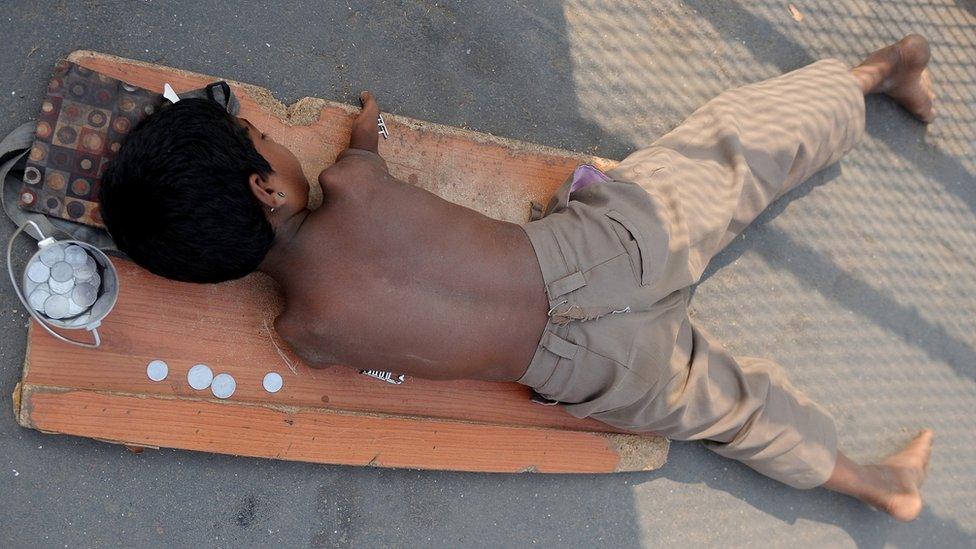
- Published9 June 2016
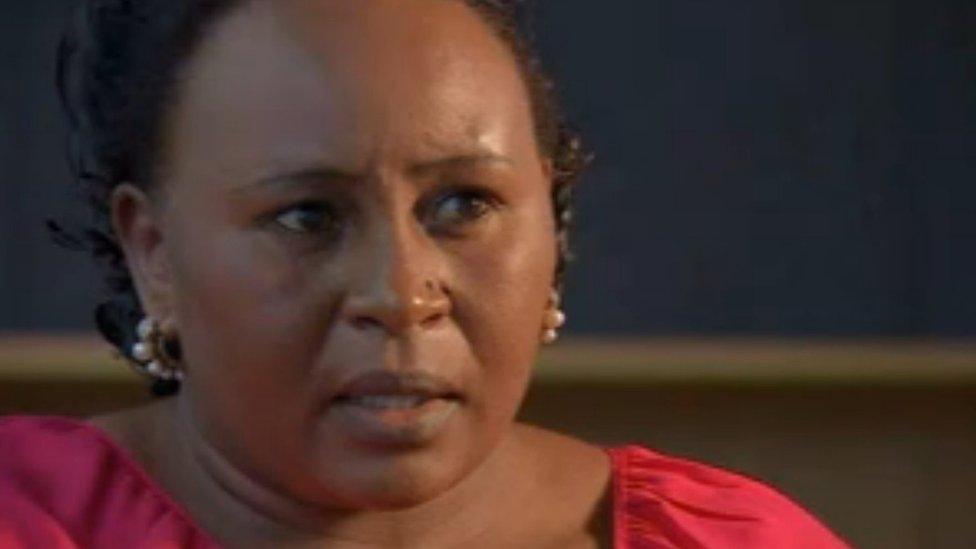
- Published16 October 2015
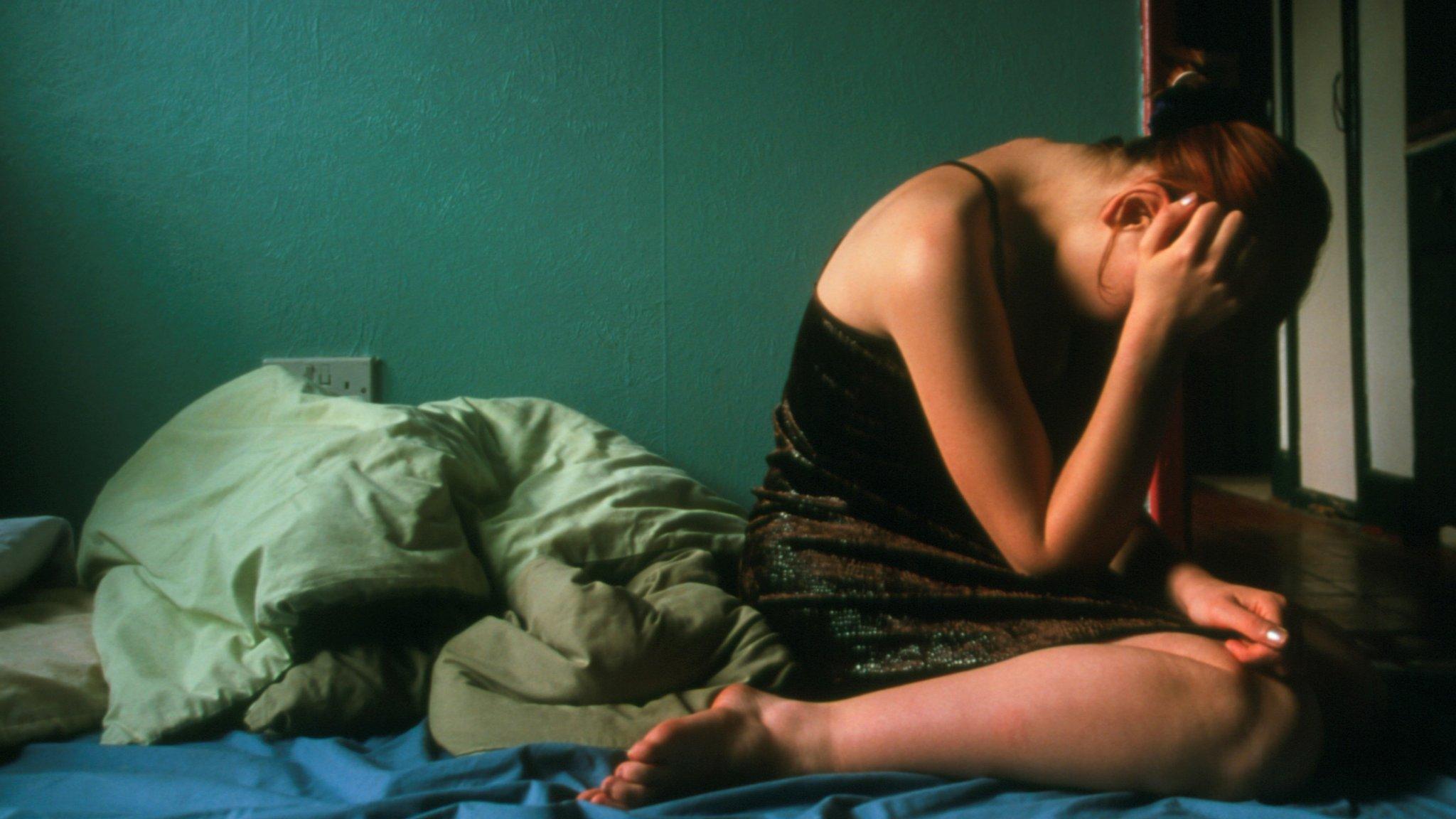
- Published31 July 2015
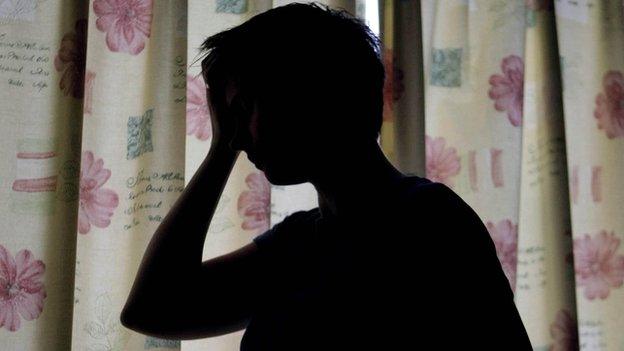
- Published19 February 2015
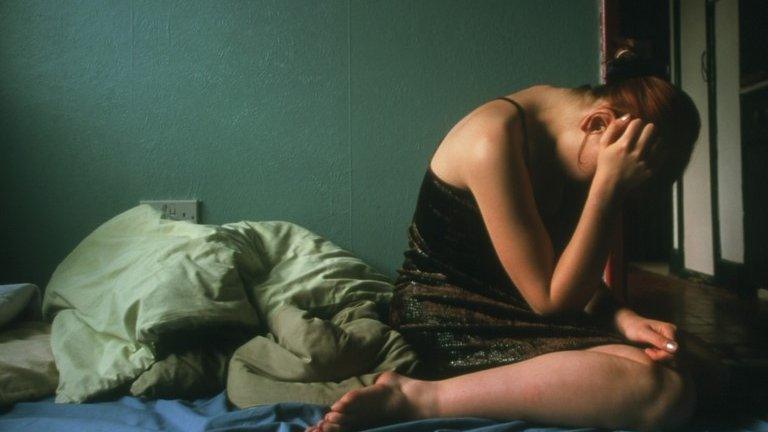
- Published29 November 2014
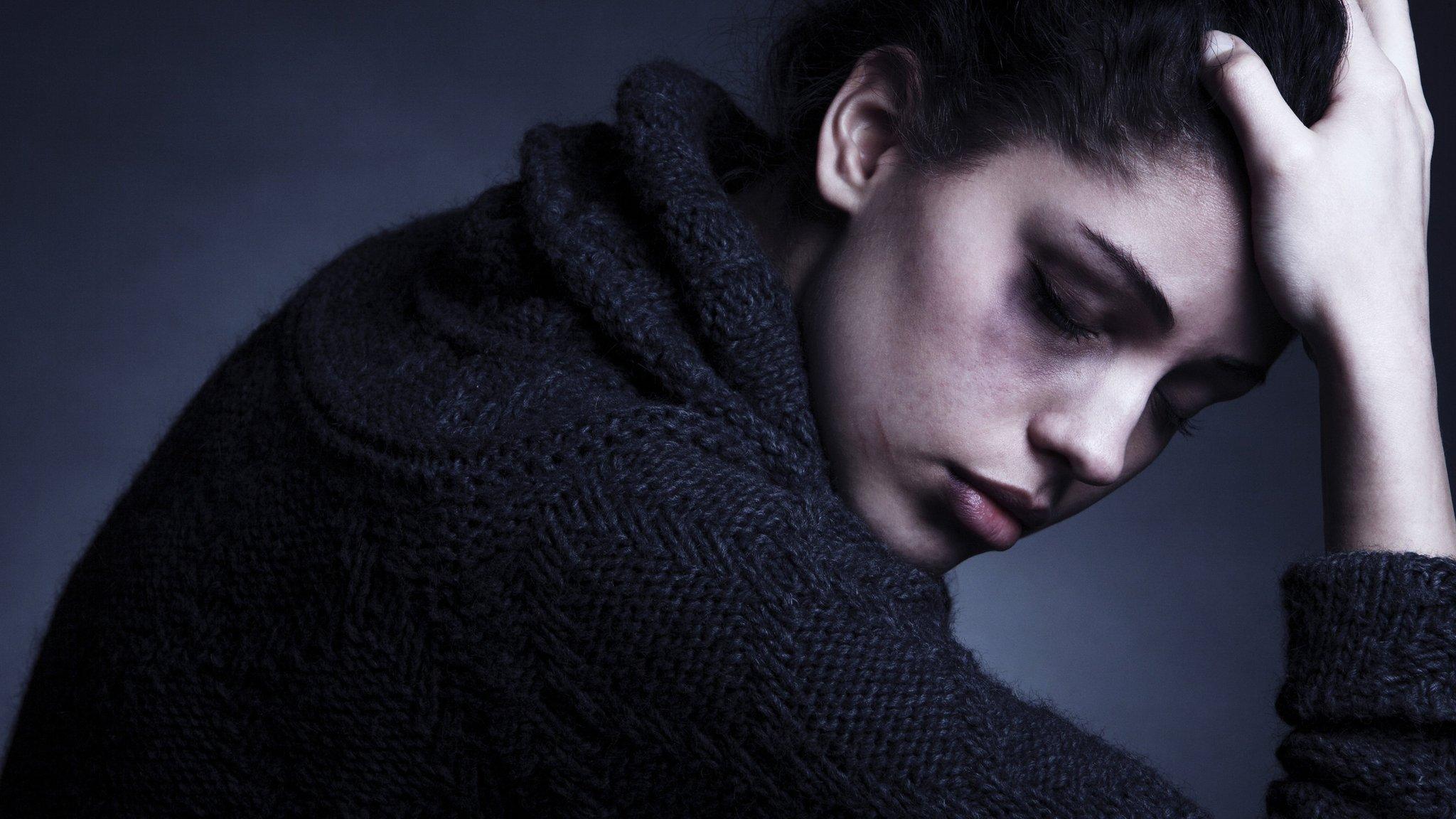
- Published31 July 2014
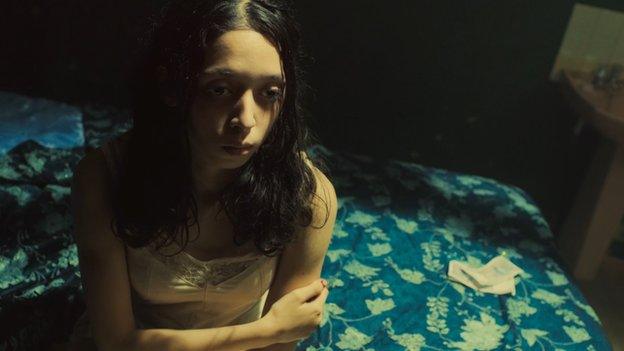
- Published21 February 2014
